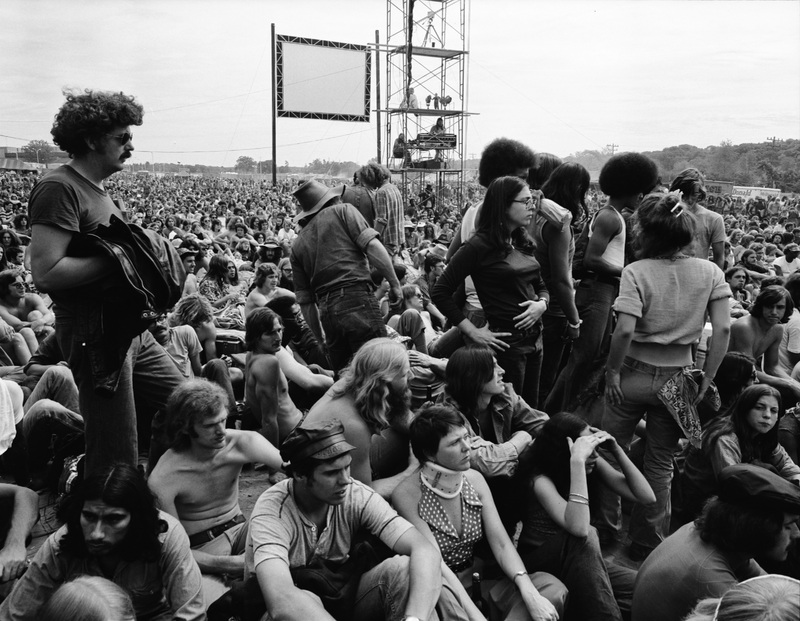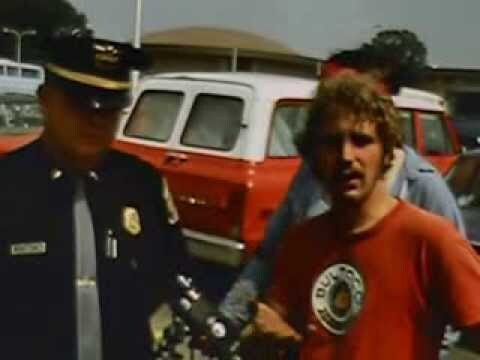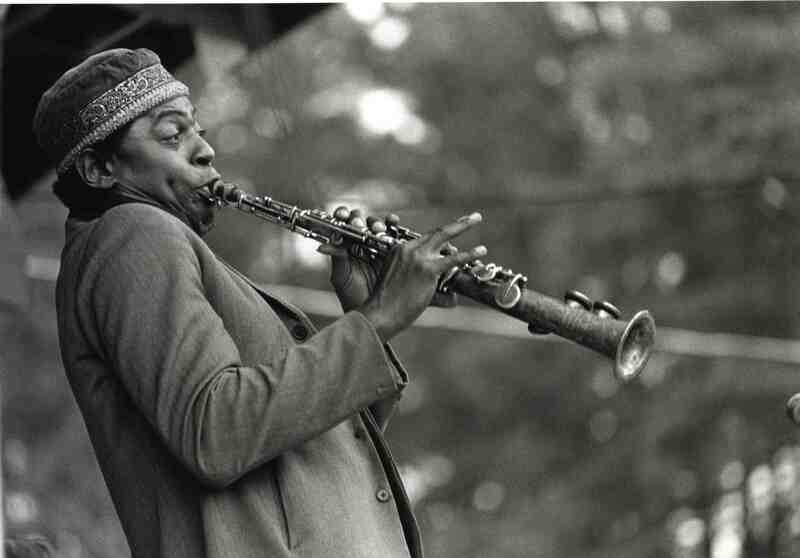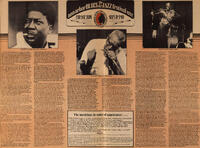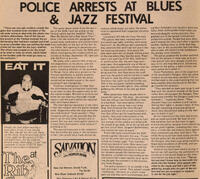Ann Arbor Blues & Jazz Festival
The Ann Arbor Blues and Jazz Festival began in 1972 and stems from the Ann Arbor Blues Festival, dating back to 1969. The Ann Arbor Blues Festival was created and organized by a group of University of Michigan students led by Cary Gordon and John Fishel and was first sponsored by the university and Canterbury House (Erlewine, 2010). In 1970, the festival experienced a major financial loss due to lack of attendance because of a simultaneous rock concert at Goose Lake International Music Festival. As a result, the Blues Festival lost its funding from the university.
The festival was revived and rebranded into the Ann Arbor Blues and Jazz Festival in 1972 thanks to the efforts of Peter Andrews and John Sinclair. Their plan included expanding the festival to include other genres including jazz and rhythm & blues, and to add enough headliners to increase attendance without forfeiting the original sound and artistry demonstrated in the Blues Festivals of 1969 and 1970. Despite operating without large-scale financial support, in its first year the Ann Arbor Jazz and Blues Festival anticipated over 15,000 attendees and included performances from Howlin’ Wolf, Sun Ra and his Arkestra, Muddy Waters, Archie Shepp, and more. Run by Sinclair’s non-profit organization, Rainbow Multi-Media, the profits from the festival were distributed across a series of community-based and community-oriented projects, including Project Community, Trotter Hous, the Community Parks Program, and the People’s Ballroom. From an issue of the Ann Arbor Sun, an article titled “The Ann Arbor Blues & Jazz Festival 1972 Fri-sat-sun Sept 8-9-10” stated:
“Culturally, economically, and politically, then, the Ann Arbor Blues & Jazz Festival 1972 is a unique event; and even more than that, it is unique in a singularly progressive term. We consider the Festival to be a first major step in our community toward self-reliance, self-determination, and the development of an alternative, communalist, non-profit economie system which would be controlled by the people within our community and not by people who have no more to do with our culture and our music than, say, Richard Nixon. We trust that the Festival, as the earlier Ann Arbor Blues Festivals, will be a smashing artistic success - it's hard to conceive that it could be any other way. (1972)
The article also outlines that the festival received full clearance and support from the city government of Ann Arbor; however, an altercation occurred at the event between police and festival-goers when officers attempted to arrest two men suspected of possible cocaine use. Eyewitnesses suggested the situation worsened due to the policemen's invasive approach–including shining flashlights into tents–which heightened tensions among the crowd (“Police Arrests At Blues & Jazz Festival,” 1972).
In 1974, the festival was exiled to Windsor, Canada by a ruling from the Republican majority on the Ann Arbor City Council, resulting in a loss of over $100,000 due to harassment and border hassles from FBI and other law enforcement officials, which prevented high turnout (“Rainbow Multi-media Folds,” 1974). For several years, Andrews attempted to reinstate the festival but kept getting shut down by the Ann Arbor government. Eventually, Lee Berry, a music promoter in Ann Arbor, helped Andrews by addressing the city council. After eighty meetings, the council voted unanimously to restart the festival with many changes in 1992, including the replacement of outdoor night concerts with indoor events held at venues such as Michigan Theatre and the Bird of Paradise (Glenn, 2009).
The Ann Arbor Blues and Jazz Festival went on an over decade-long hiatus, first held again on August 19, 2017 thanks to promotional and managerial efforts of Ann Arbor resident and founder of the Ann Arbor Blues Society, James Partridge. The festival was promoted back under the name Ann Arbor Blues Festival, and performers included Blair Millier, Tino G’s Dumpster Machine, Alabama Slim, and the Chris Canas Band. The festival took another hiatus in 2020 due to the COVID-19 pandemic before resuming in 2021.
